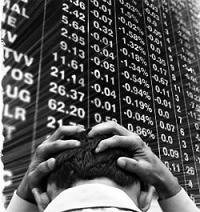The Criminalization of Wall Street: Lynching Bankers is not the Solution
The Real Economy has been decimated

Six out ten Americans have a hostile view of Wall Street, according to a recent poll. And this survey was taken before the news last week that the US government is charging top Wall Street bank Goldman Sachs and its vice president with fraud over trade in mortgages and derivatives. The charge is serious, given that Goldman Sachs is accused of being aware that there would be an imminent collapse in the US housing market. Nevertheless, the bank went ahead anyway, merrily trading its toxic assets.
Other leading banks and their chief executives are likely to be probed for acting likewise. Such investigation is necessary and long overdue, especially given the trillion-dollar bailouts these profiteers have received from the majority of ordinary tax payers who have borne the brunt of the misery, many of them losing their jobs, houses and retirement plans.
But from the way the mainstream media is reporting the Wall Street shuffle, there is a danger of the wider public seeing the economic misery across the US and many other parts of the world as simply the fault of greedy banks and greedy bankers. This viewpoint was exemplified when British Prime Minster Gordon Brown got on his high horse to denounce Goldman Sachs for its ”moral bankruptcy”. The trouble is that this view tends to personalise the problem as the fault of individuals as opposed to seeing it as the result of systemic failure. Yes, individuals made decisions that led to disaster (and should be prosecuted accordingly). However, it must be kept in mind that these individuals and their decisions operate within a system. It’s not so much a case of moral bankruptcy as systemic bankruptcy.
What we are witnessing is not just the sins of errant bankers, but the historic exhaustion of capitalism as a system of economic production and organisation. The long decline in working conditions (pay etc) for most workers in the US and Europe, including the middle class, can be traced back to the 1970s when western corporations and the rich began a taxation revolt. Wages were cut in real terms, both parents had to go out to work, credit cards became common currency, and national wealth was shifted to the already rich through regressive taxation.
Since then the productive, or real, economy in the US and Europe has been decimated, replaced with a speculative property/finance, or fictitious, economy. This acted as a subsidy to most working people and temporary palliative for their pain and also served as a cover for the gross embezzlement that governments of all stripes were facilitating for the corporate/financial elite making a killing. But sooner or later the reality of massive indebtedness had to crash through this expedient fiction. Karl Marx had this historic dead-end trajectory of capitalism pretty well taped when he said that speculation and in particular property speculation was the “last refuge of the capitalist scoundrel”.
People need to address the current crisis in terms of criticising capitalism as an economic system, rather than personalising it in the form of merely greedy bankers who are “morally bankrupt”. That mindset leads to demagoguery and reactionary populism, where deeply rooted problems are “sorted out” by a lynch-mob approach. The sooner we realise that capitalism has outlived its usefulness as an organising system, then the sooner we will address a viable alternative: socialism.
Finian.cunningham@gmail.com

